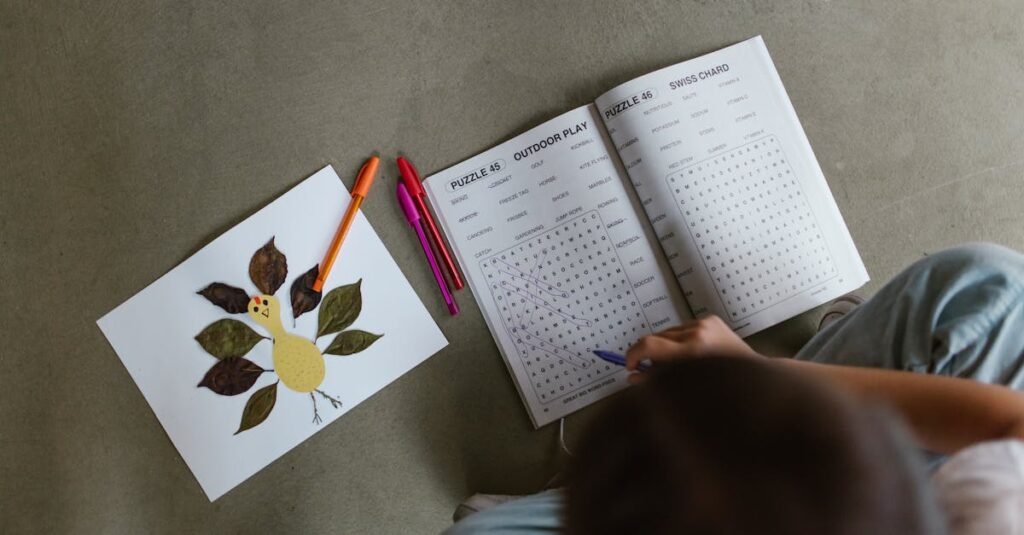
Introduction
In today’s digital age, children are constantly bombarded with screens and fast-paced entertainment. However, traditional brain-teasing activities like crosswords, mazes, sudoku, and riddles provide invaluable benefits for cognitive growth and overall development. These puzzles challenge young minds, encouraging them to think critically, solve problems, and develop essential skills that will benefit them throughout their lives. In this article, we explore how engaging in these activities can positively impact a child’s cognitive, emotional, and social development.
1. Enhancing Cognitive Skills
One of the most significant benefits of puzzles is their ability to boost cognitive functions. When children solve a crossword, they enhance their vocabulary and spelling skills. Sudoku improves numerical reasoning and pattern recognition. Mazes help with spatial awareness and problem-solving, while riddles encourage lateral thinking and creativity. These activities stimulate different parts of the brain, improving memory, concentration, and logical reasoning.
2. Strengthening Problem-Solving Abilities
Puzzles require children to analyze information, recognize patterns, and develop strategies to reach solutions. Whether figuring out a tricky crossword clue, navigating a complex maze, or deciphering a riddle, kids must think critically and try different approaches. This ability to adapt and persist through challenges is a valuable life skill that helps in academic performance and real-world situations.
3. Encouraging Creativity and Imagination
Many puzzles require creative thinking and out-of-the-box solutions. Riddles, for instance, challenge kids to interpret words in unexpected ways. Mazes and logic puzzles inspire imaginative problem-solving, allowing children to visualize multiple solutions. Encouraging creativity at a young age fosters innovation and flexibility, which are critical in both education and future careers.
4. Improving Focus and Patience
Solving puzzles requires time and concentration. Kids learn to focus on a single task and work through it systematically, enhancing their attention span. The satisfaction of solving a puzzle also teaches patience and perseverance. These qualities are essential for success in school and beyond, as they help children tackle complex problems without giving up easily.
5. Boosting Confidence and Self-Esteem
Successfully completing a puzzle provides a sense of accomplishment and boosts self-confidence. Children feel a great sense of pride when they solve a tricky crossword or complete a challenging maze. This positive reinforcement encourages them to take on more difficult tasks, reinforcing a growth mindset and resilience.
6. Supporting Social and Emotional Development
Many puzzles can be solved collaboratively, fostering teamwork and communication skills. Whether working together on a word search or taking turns solving riddles, children learn to cooperate, share ideas, and support each other. Additionally, solving puzzles can be a great bonding activity for families, strengthening relationships and encouraging positive interactions.
Conclusion
Puzzles and brain teasers offer far more than just entertainment; they are powerful tools for learning and development. From enhancing cognitive abilities to building patience and creativity, these activities play a crucial role in shaping well-rounded, capable individuals. Encouraging children to engage in crosswords, mazes, sudoku, and riddles not only helps them academically but also prepares them for problem-solving in everyday life. So next time your child picks up a puzzle, know that they are exercising their brain in the best possible way!
